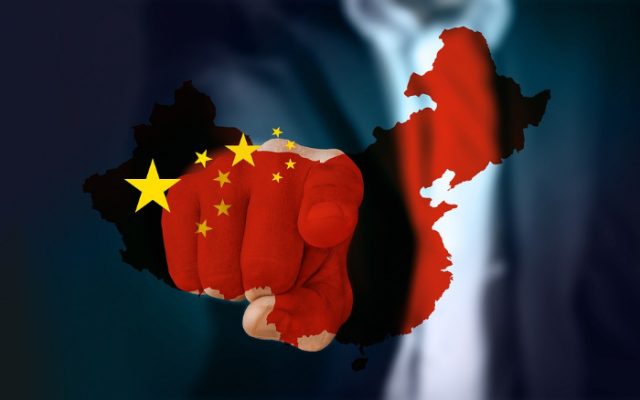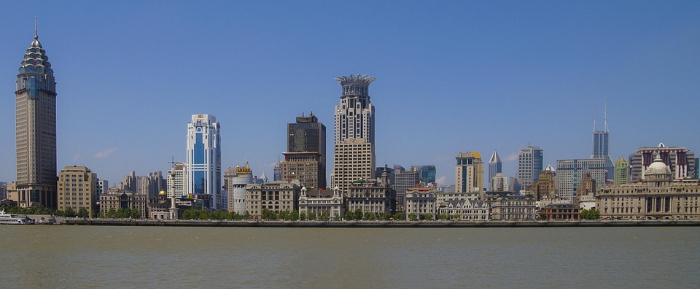
Ten years ago on Wednesday, the opening ceremony of the Beijing Olympics showcased a fast-growing, economically powerful China with unmistakable ambitions to be a major global player. Just a few days ago, the Chinese authorities demolished the studio of artist Ai Weiwei, designer of the Games’ iconic “bird’s nest” stadium and now an exiled dissident in Germany. It was the latest sign of how the world’s most populous country has evolved under President Xi Jinping – simultaneously more self-confident yet paranoid, and no longer nearly so bothered what the rest of the world thinks.
While once China’s leaders openly flirted with copying the West, they now see themselves on a different route – even if that brings real risks of confrontation. In Johannesburg at the BRICS meeting of leaders of the world’s largest emerging economies last month, Xi outlined his robust worldview that China – with its unashamed focus on economic growth and disregard for electoral choice and civil rights – offered a different vision than Western capitalist democracy.
In the South China Sea and beyond, Beijing’s military has become ever more assertive. At the same time, its Belt and Road initiative – a multibillion-dollar set of global infrastructure investments explicitly aimed at redrawing global land and sea trade routes in China’s interests – has both boosted Beijing’s international clout but also hit some trouble. In countries like Colombia and Malaysia, among others, local politicians and governments have pushed back against major Chinese projects, sometimes canceling them altogether amid complaints over corruption and Beijing’s heavy handedness.
Beijing is also seen by some as being increasingly on the defense in its dealings with U.S. President Donald Trump, failing to gain the initiative in what looks to be an increasingly damaging trade confrontation. At home, meanwhile, Beijing’s Communist Party rulers are showing signs of nervousness amid a growing crackdown on dissent and minority groups.
In its northwestern Xinjiang province, Beijing’s clampdown against the Muslim Uighur minority has seen between 100,000 and 1,000,000 imprisoned in “reeducation camps,” described by rights monitors as probably the world’s largest mass incarceration program. Xi’s high-profile anticorruption crackdown has seen hundreds, probably thousands arrested, including senior Communists party and business figures. In both cases, China has been keen to use its international clout to help support the clampdown, pressuring a host of other nations to deport those it wishes to arrest or seize their assets.

That brings its own problems. According to reports, Beijing’s attempts to understand the Trump administration and stay ahead in the tariff battle have been stymied by the reluctance of its own foreign policy experts and think tanks to provide open and honest advice for fear of antagonizing powerful figures. In addition, Chinese government advisers and academics now face travel restrictions, with Beijing typically only allowing them to leave the country for a few days at a time, further complicating their efforts to understand the world beyond China.
If anything, though, domestic problems and international criticism only seem to intensify China’s conviction – and enthusiasm – for pushing ahead with its plans to reshape the world. With the United States and European nations mired in their own domestic political and economic crises, Beijing may well feel it offers something both different and more sustainable.
If anything domestic problems and international criticism only seem to intensify China’s conviction.
When it comes to North Korea, both China and the Trump administration have clearly tried to convince Kim Jong Un that, like its more powerful northern neighbor, the world’s most isolated state could integrate into the global economy without significantly altering its brutal dictatorial system of government. In Zimbabwe, Chinese economic and military advisers appear to have been involved in – or at least supportive – of last year’s ousting of long-term ruler President Robert Mugabe by his deputy, Emmerson Mnangagwa. (Mnangagwa won the presidency in Zimbabwe’s July 30 election, which was marred by violence and allegations of fraud.) In addition, China, long one of the world’s largest arms exporters, is increasing its support for authoritarian governments, with Xi recently promising another $23 billion in loans to Middle Eastern states to build their economies and have “social stability” – a move widely seen as a pledge to help their governments retain control of sometimes restive populations.
Intimidation, however, is increasingly one of China’s first tools of choice. Attempts this year to force international airlines into stopping listing Taiwan – which Beijing classes as a “rogue province” – as an independent country have been among the most obvious signs of this. International airlines responded in a variety of ways, with the U.S. State Department expressing “strong concerns” over China’s attempt to dictate the language used by foreign firms on their own websites and products.
Inevitably, that heavy-handed approach is yielding mixed results. In sub-Saharan Africa, Latin America and a host of other emerging markets, Beijing’s raw economic power – coupled with its willingness to work with often corrupt local governments – continues to buy it access. Crucially, China retains the flexibility to finesse its approach from nation to nation. In South Africa, China has largely avoided importing its own labor due to pressure from the government. Chinese migrant populations remain high in a host of smaller countries, including Zambia and Angola – although official Chinese data last year suggested an economic slowdown on the continent was prompting some to return home.
Elsewhere, however, the pushback is growing. Last month, Malaysia suspended $22 billion of Chinese investment, mainly in infrastructure, following a major corruption scandal. In Latin America, Beijing has already supplanted the United States as the largest investor in several countries, including Brazil, Chile and Peru. But despite the region’s growing frustration with the Trump administration, there has long been nervousness about getting too close to China. Nicaragua this year saw significant protests against a Chinese canal project. Even Russia, Beijing’s diplomatic and military ally on many issues, has its own concerns over Chinese expansion, particularly in Central Asia.
Those in charge in Beijing may find it closes at least as many doors to them as it opens.
China’s Communist Party rulers may not be particularly concerned by that. In the last decade, they have clearly decided they would rather be feared than liked. That’s a strategy other countries will have to adapt to, but those in charge in Beijing may find it closes at least as many doors to them as it opens.
Peter Apps is Reuters global affairs columnist. The opinions expressed here are his own.









